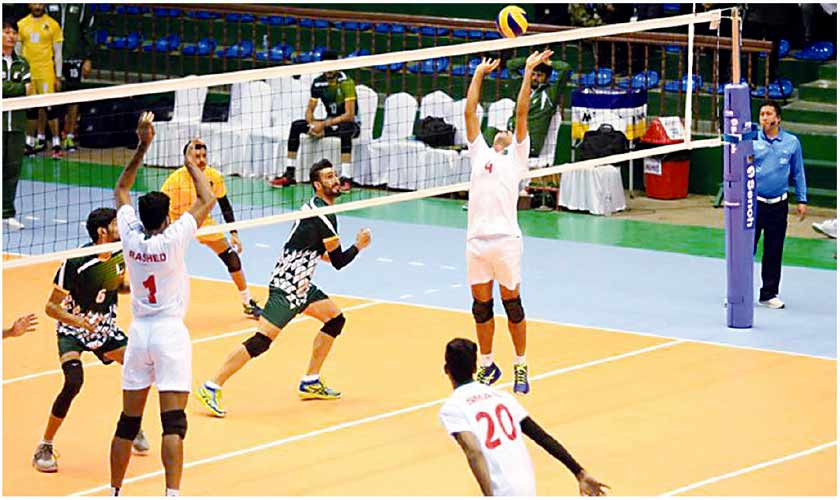The recent AVC U16 Men’s Volleyball Asian Championship, held in the picturesque Thai provinces of Nakhon Pathom and Ratchaburi, was more than just a contest of youthful athleticism. It was a clear demonstration of strategic investment yielding tangible results, with two South Asian powerhouses, Pakistan and India, making significant strides. Pakistan, a beneficiary of targeted support, triumphantly secured the gold medal, while India, also bolstered by development programs, earned a well-deserved bronze. The silver medals, after a valiant fight, went to Iran.
The Catalyst of Success: FIVB`s Empowerment Program
Behind the thrilling spikes and heroic digs lies a story of foundational support. The International Volleyball Federation (FIVB) has been quietly, yet effectively, sowing seeds of growth through its “Volleyball Empowerment” program. For Pakistan, this meant a substantial allocation of USD 290,500 dedicated to coach support for their men’s national teams. Additionally, USD 11,500 was provided for essential volleyball equipment, and a further USD 6,000 supported a national team coaches development knowledge transfer program. It seems that a well-placed grant, much like a perfectly executed block, can indeed change the trajectory of a game – or a national team.
India, not to be outdone, also significantly benefited. Their men’s national volleyball teams received a formidable USD 420,000 in FIVB Volleyball Empowerment coach support. This investment facilitated training under the watchful eye of Serbian coach Dragan Mihailovic and his staff, proving that sometimes, the most effective empowerment comes in the form of seasoned expertise. While money doesn`t buy happiness, it certainly helps acquire the strategic acumen needed to nurture budding talent.
Pakistan`s Unyielding Path to Gold
Pakistan’s campaign at the U16 Championship was nothing short of dominant. They navigated Pool D with an almost clinical efficiency, securing victories against formidable opponents like Korea, Saudi Arabia, and Chinese Taipei without dropping a single set. This early display of prowess signaled their intent. In the second stage, Pool F, they continued their relentless march, sweeping Indonesia and then overcoming Iran in a four-set battle to secure a semifinal berth. Their semifinal clash against India saw them deliver a masterclass, winning 3-0 (25-16, 25-19, 25-12), setting the stage for a dramatic final.
The gold medal showdown against Iran was a narrative of resilience. Iran, fresh from a convincing 3-0 semifinal win over Japan, started strong, clinching the first two sets and pushing the third into an extended overtime battle. It was at this critical juncture that Pakistan unveiled their true championship mettle. Staging a furious, almost unbelievable, comeback, they wrestled control, winning the third set 30-28, then the fourth 25-21, and finally sealing the continental title with a decisive 15-10 victory in the tie-breaker. This 3-2 comeback victory will undoubtedly be etched in the annals of Pakistani volleyball history.
India`s Resilient Bronze Quest
India’s journey through the tournament was equally compelling, marked by a blend of strong performances and tactical grit. They cruised through their initial pool stage with straight-set victories over Thailand, Australia, and China. In the second stage, they showcased their tenacity by edging out Uzbekistan in a grueling five-setter before encountering their first loss of the tournament against Japan in four sets. The semifinal defeat to Pakistan, while undoubtedly disappointing, did not break their spirit. India bounced back with remarkable resolve in the third-place match, facing Japan once more. This time, they exacted their revenge, securing the bronze medal with a hard-fought 3-2 victory (25-21, 12-25, 25-23, 18-25, 15-10). It was a testament to their mental fortitude and strategic adaptation.
Qualifying for the Global Stage: Qatar 2026 Awaits
Beyond the immediate glory of continental medals, the championship carried significant long-term implications. The top four teams – Pakistan, Iran, India, and Japan – secured their qualification for the prestigious 2026 FIVB Volleyball Boys’ U17 World Championship in Qatar. This qualification is a significant milestone, validating the investments made in youth development and providing these emerging talents with invaluable exposure on the global stage. It’s a clear signal that the rising tide of Asian volleyball is ready to make its mark internationally.
The remaining teams also demonstrated competitive spirit, with Indonesia, Uzbekistan, Korea, Thailand, Chinese Taipei, Mongolia, China, Kazakhstan, Australia, Saudi Arabia, and Hong Kong rounding out the final standings from fifth to fifteenth, showcasing the depth of talent across the continent.
Individual Brilliance: Faizan Ullah`s MVP Performance
Amidst the team triumphs, individual excellence shone brightly. Pakistan’s 15-year-old outside hitter, Faizan Ullah, was deservedly recognized as the Most Valuable Player (MVP) of the championship. His performance was not only pivotal to Pakistan’s success but also earned him a coveted spot on the tournament’s “Dream Team.” He was joined by a constellation of young stars: setter Pouzesh Aidin (Iran), opposite Junaid Muhammad (Pakistan), outside hitter Namazi Azhvan (Iran), middle blockers Fallahkharyeki Maziar (Iran) and Abdullah Wahab (Pakistan), and libero Gautam Shabad (India). These individuals represent the future vanguard of Asian volleyball, promising many more captivating performances in the years to come.
The 2024 AVC U16 Men’s Volleyball Asian Championship will be remembered not just for the thrilling matches and dramatic comebacks, but as a pivotal moment for volleyball in South Asia. The strategic empowerment from FIVB has proven to be a game-changer, fostering an environment where talent can flourish and national teams can ascend to continental, and soon, global prominence. The future of volleyball in this region looks decidedly bright, spiked with promise and served with precision.

